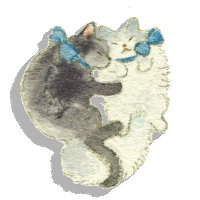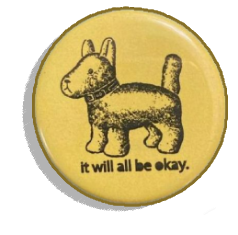




Some of my favourite books! I don't like making my reading extremely public (or otherwise I'll push myself to read too much) but I do LOVE to talk about some books if I have any thoughts on them.
Warning: this book does contain difficult topics, mainly grooming and pedophilia. My Dark Vanessa was a spectacular read. I heard about it ages ago, when a youtuber I can't remember read a part of it in a video essay(?). I do remember that I didn't want to read it at first, since I had the false impression that the book would be very 2014 tumblr-esque (perhaps because of the title?). But I'm so glad that I eventually ignored this and picked it up. Russell has such a great way with words, with writing tension and emotion and building beautiful scenes that you cannot escape from. It shows a young girl who is groomed and abused by her English teacher, and you can really get in her head and understand how it must feel for her to be in such a terrible situation. It does depict scenes of assault, but the relationship between Vanessa and her teacher is in no way romanticized, even though Vanessa herself wants it to be a love story. If you think that this book won't be too triggering, I do recommend it so much! It's tough read for sure, but it talks about such important topics. This book was a BIG one (800+ pages) and I loved to take my time reading it. I heard about ACT UP (AIDS Coalition To Unleash Power) through Paul Takes the Form of a Mortal Girl (Andrea Lawlor), since Paul was a member of it in the story. So when I found a video online recommending Let the Record Show it felt like a sign. It was an interesting read for sure, it talked about how the organization worked, the important actions it did, and the changes that were made because of ACT UP, it also details the eventual things that broke the organization. Sarah Schulman also tried to shine more light on the women and people of color in act up, to break the stereotype that AIDS was a thing for white gay males. The book was slow in the beginning, and I didn't always enjoy the writing style, but I am glad that I read it. I teared up when the Ashes Action was mentioned, and then I teared up again when I saw the photograph of it included later in the book. Schulman also added little blocks of remembrance for people who died, just to keep their memory alive. I had trouble giving this book a rating. To make tracking easier, I don't give half ratings, so I had to give it either a 3 or a 4. I ended up settling on a 4. Reading Lolita in Tehran talks a lot about the political situation in Iran in mainly the 80s. It talks about being a teacher and a woman in Iran after the revolution, when it became an Islamic Republic. Nafisi talks about the many different political views in her classroom, and how it was difficul to teach when many of her students couldn't seperate their personal identities and opinions from their political ones. Nafisi also ends up starting a secret class with a few girls, in which they read English literature. The Iran-Iraq war is also spoken about. The reason why I wanted to give this a 3 initially was that I couldn't really get into it, it felt drawn out at times. But still, the writing was beautiful, and I think that if I had more interest in the literature that it talks about it would have been a better experience for me. Nafisi gives a lot of interesting insight in different works - mainly by Nabakov, Henry James, and Jane Austen, to name a few - and I think that a person who has interest in these authors could really get into this book.
Fiction

My Dark Vanessa
Kate Elizabeth Russell
Date: 30.11.25, Rating: 5★
“For a moment I’m speechless, unable to come up with an answer
besides, I walked into his classroom. I existed. I was born.”
Non-Fiction

Let the Record Show: A Political History of ACT Up New York, 1987-1993
By Sarah Schulman
Date: 30.12.25, Rating: 3★
“We are being
allowed to die, while low risk populations are being
panicked—not educated, panicked—into believing
that we deserve to die.”

Reading Lolita in Tehran: A Memoir in Books
By Azar Nafisi
Date: 02.01.26, Rating: 4★
“Against the
tyranny of time and politics, imagine us the way we sometimes didn’t dare
to imagine ourselves: in our most private and secret moments, in the most
extraordinarily ordinary instances of life, listening to music, falling in love,
walking down the shady streets or reading Lolita in Tehran. And then
imagine us again with all this confiscated, driven underground, taken away
from us.”